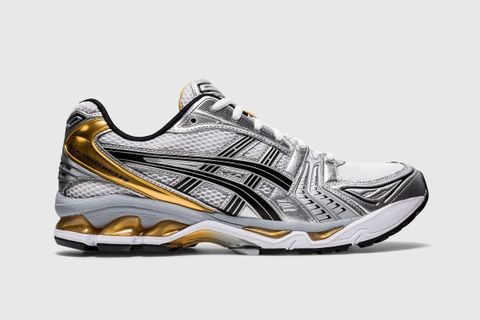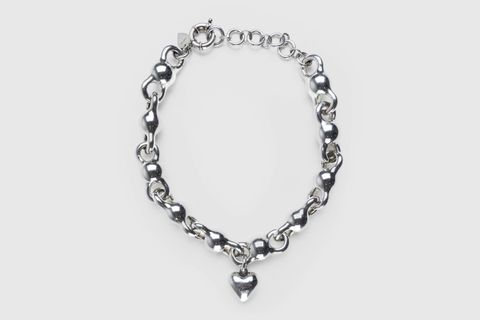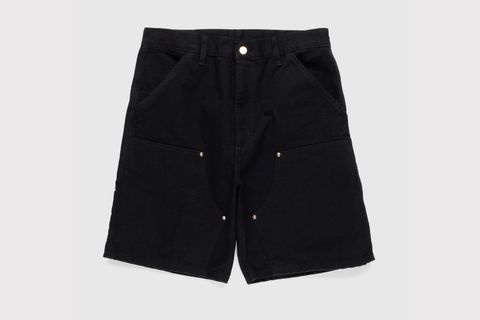The Europeans Have Reclaimed Eurotrash
"If you can't laugh at yourself, who can you laugh at?" That quote, oddly attributed to two wholly distinct pro golfers — Tiger Woods and Payne Stewart — is currently best embodied, fashion-wise at least, by Eytys.
The Stockholm-based fashion label inadvertently set off a micro trend when it released several tight, cropped "Eurotrash" T-shirts for Spring/Summer 2023, which quickly became, if not Eytys' most popular product, certainly the most omnipresent item that it's issued in years.
Eytys' Eurotrash T-shirt has quietly gone viral among young, social media-savvy European shoppers, having been worn by everyone from clubgoers to Mae Muller, an English singer likely best known for performing in the Eurovision competition, and all of them are presumably in on the joke.
Eytys has other best-selling T-shirts, including shirts printed with "Business Class" — see, it's funny 'cuz you typically aspire to first class — but the Eurotrash tee is by far its most popular option.
Now, as as a born-and-bred American whose best cultural connection to Eurovision is that one Will Ferrell movie that I never saw, the demand for Eytys' Eurotrash T-shirt utterly escaped me until a European coworker pointed it out.
I was immediately confused.
I totally get the appeal of the Eytys T-shirts and all — the cut is very now and ironic fashion T-shirts have been a thing since forever — but isn't Eurotrash, like a bad thing? Like, isn't it basically the equivalent of the "ugly American" stereotype?
Yes and no.
Eurotrash, as I've been told by those same coworkers, is essentially a passé phrase that primarily describes a pre-Y2K era across Europe wherein dudes gelled their hair up and tightened their pants, women embiggened their hair and donned low-rise jeans (think '00s-era Christina Aguilera), and everyone listened to Eiffel 65.
Eurotrash wasn't always a pejorative, either, as one site explains: "Eurotrash is merely another way to tag the people we see out at night. It's no more a slur than hipster, socialite, frat boy, Carrie, Samantha, Miranda, Charlotte."
It seems like Eurotrash, the word, went out of style around the same time that Sex and the City ended, whereas Eurotrash, the aesthetic, merely mutated into Y2K-core.
There was even, amazingly, an early-'90s show called Eurotrash that co-starred Jeal Paul Gaultier himself.
When you think of the skin-tight, skin-baring looks Gaultier was sending down the runway in around that time, you both get a better mental image of Eurotrash and its malleable meaning.
That so many young fashion folks have gravitated to Eytys' Eurotrash T-shirts, a reference to an era that predates most of their births, makes sense.
The biggest factor, obviously, is irony.
Today's self-deprecating fashion tees are coming from the same place as Helmut Lang's "COWBOY" and Vivienne Westwood's "Tits" tee but, driven by Gen Z's general existential dread, the shirts have become extra-ironic.
Indie label Praying printed the holy trinity on a controversial bikini and while Balenciaga sells "FREE STYLING TIPS" T-shirts, post-Demna Vetements ups the ante with tees that actively mock the wearer.
Even tourist merch has now become an IYKYK style statement, if you know where to look.
It's really just that Eytys' Eurotrash T-shirt stands out among the other ironic T-shirts (at least for European shoppers) by tapping into the Europe-ness of it all.
Like so much other Y2K worship, though, Eytys Eurotrash tee simultaneously hearkens back to better, pre-Brexit days (perhaps little coincidence that the a lot of British people are wearing the tee).
The word is as much a defunct insult as it is an instant callback to simpler, better days. Wouldn't we all like to be Eurotrash, actually?


